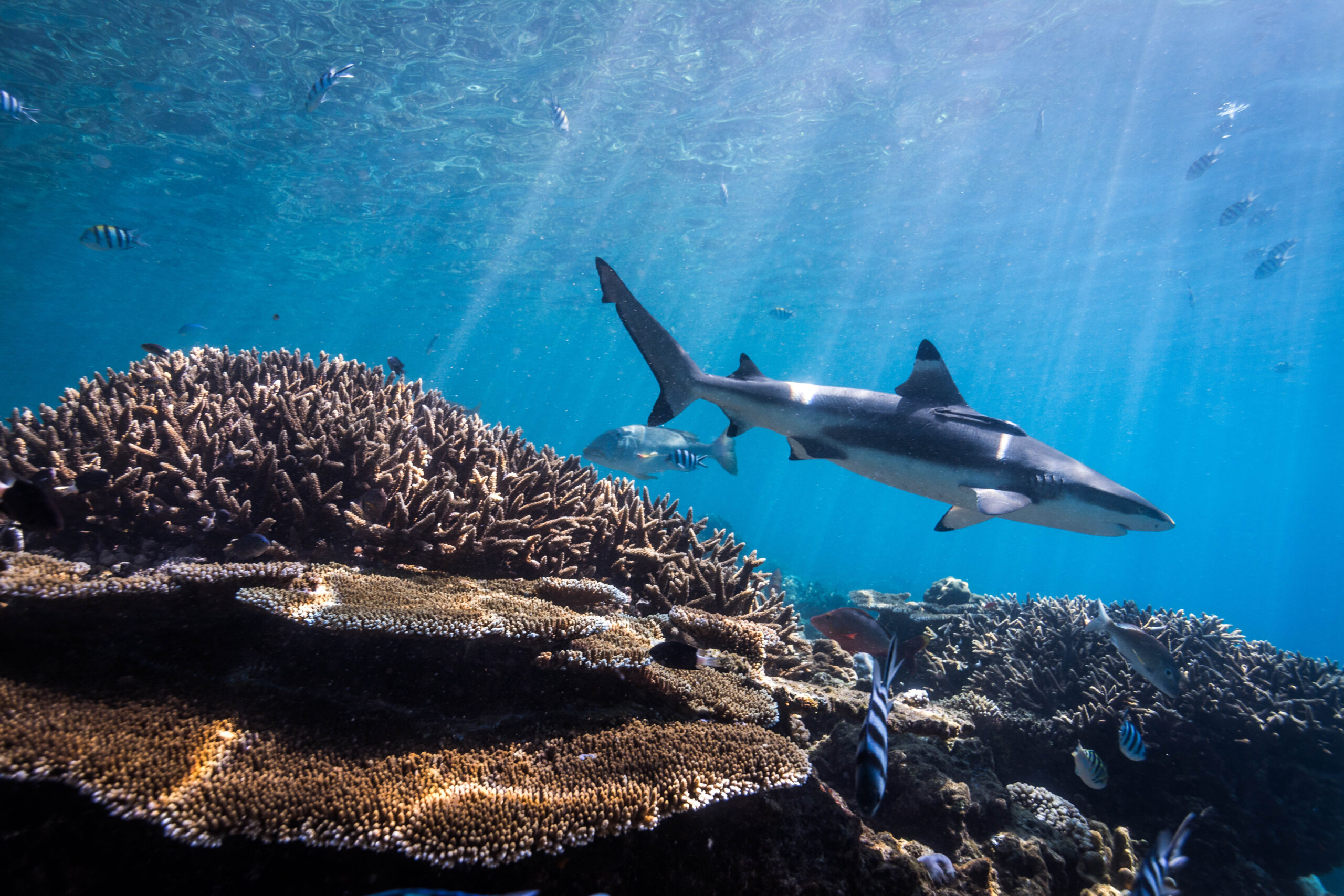Coral reef fisheries play a role in livelihoods and local economies around the world, but the impacts of fishing on targeted species of reef fish is poorly understood. The authors of this study examined the vulnerability of different species of coral reef fish to fisheries and evaluated the effectiveness of no-take reserves and periodically-harvested closures. Using life history traits to characterize the vulnerability of fish species to fishing, they found that larger-bodied carnivorous fish have a higher vulnerability compared to smaller-bodied herbivores and detritivores. In no-take areas, moderately to highly vulnerable species take a significantly longer time (decades) to recover than less vulnerable species. Based on these findings, they make the following recommendations for managers:
- Expand studies of reef fish to improve estimates of vulnerability; Maintain long-term (20-40 year) no-take areas for full population recovery
- Enforce compliance of no-take areas
- Control timing and intensity of periodic closures for long-term fishery benefits
- Use periodic and closures and no-take areas together as fishery management tools
Author: Abesamis, R.A., A.L. Green, G.R. Russ, and C.R.L. Jadloc
Year: 2014
View Abstract
Email for the full article: resilience@tnc.org
Reviews in Fish Biology and Fisheries. doi: 10.1007/s11160-014-9362-x


